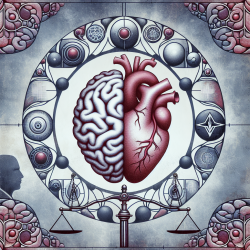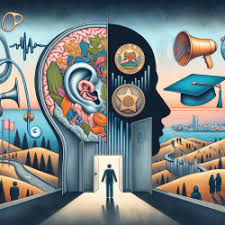Introduction
The determination of brain death and its implications for organ donation have been contentious topics within the medical community. The research article "Brain death, states of impaired consciousness, and physician-assisted death for end-of-life organ donation and transplantation" by Verheijde, Rady, and McGregor (2009) critically examines the validity of brain death criteria and its ethical implications. This blog explores the findings of the article and how practitioners can enhance their skills by understanding these complex issues.
Understanding Brain Death
Brain death is traditionally equated with human death, allowing for the procurement of organs from heart-beating donors. However, the article challenges this notion, arguing that brain death does not disrupt the somatic integrative unity of a living organism. The authors highlight several critical points:
- Brain death does not equate to the cessation of all biological functions.
- The neurological criteria for death do not determine the precise moment of death.
- Brain-based criteria exclude important anthropological, cultural, and religious aspects of death.
- Clinical guidelines for determining brain death lack consistent validation.
Ethical Considerations
The article raises ethical concerns about the current practices in organ donation, particularly regarding the potential misdiagnosis of reversible states of impaired consciousness as irreversible brain death. The authors argue that the scientific uncertainty surrounding the definition and determination of brain death has not been adequately disclosed to the public or debated within the medical community.
Moreover, the practice of procuring organs from patients with impaired consciousness is likened to physician-assisted death, which violates the central tenet of medicine: to do no harm. The authors urge society to decide if physician-assisted death is permissible and desirable to resolve the conflict about procuring organs from patients with impaired consciousness.
Practical Implications for Practitioners
Practitioners can enhance their skills by critically evaluating the current guidelines for determining brain death and considering the ethical implications of organ procurement practices. It is essential to:
- Stay informed about the latest research and debates on brain death and organ donation.
- Engage in discussions about the ethical, cultural, and religious dimensions of death.
- Advocate for transparent communication with patients and their families about the uncertainties surrounding brain death.
- Consider the potential impact of organ procurement practices on the trust in the medical profession.
Conclusion
The article by Verheijde, Rady, and McGregor provides a critical perspective on the determination of brain death and its implications for organ donation. Practitioners are encouraged to delve deeper into this topic, question existing practices, and participate in broader discussions to ensure ethical and informed decision-making in end-of-life care.
To read the original research paper, please follow this link: Brain death, states of impaired consciousness, and physician-assisted death for end-of-life organ donation and transplantation.










